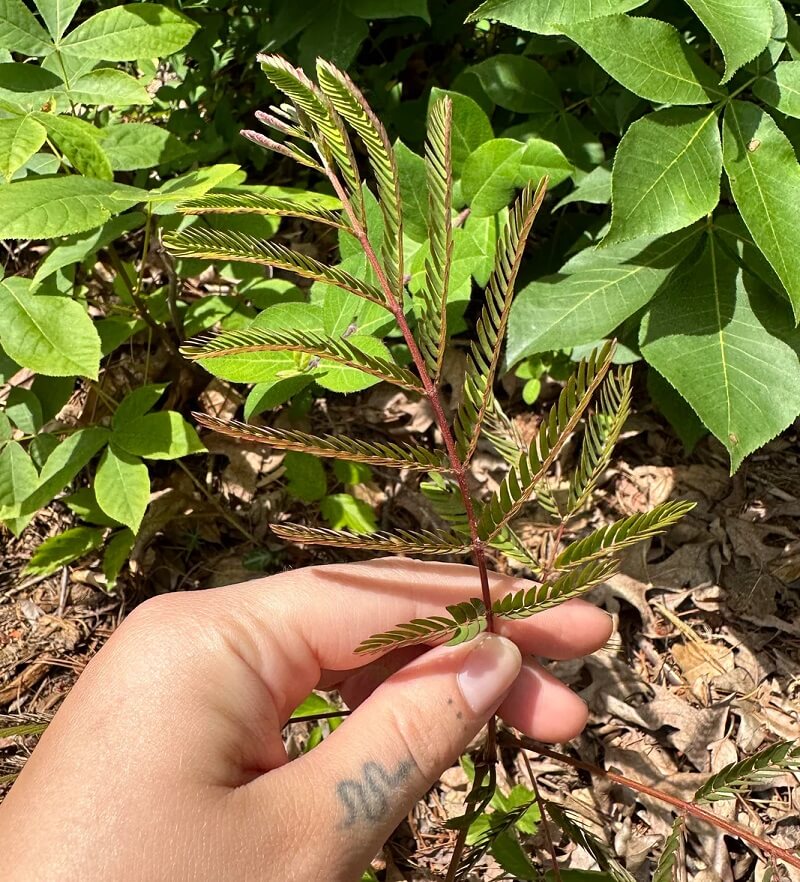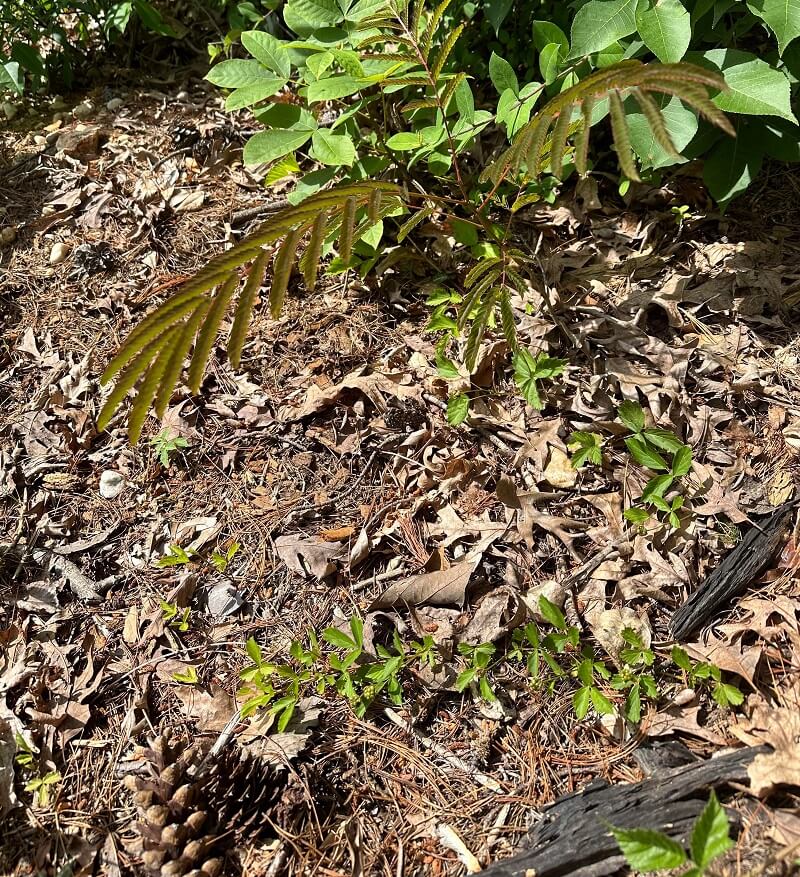A North Carolina homeowner who found a mysterious plant in their yard took to Reddit for more information about what to do with it.
In r/plantclinic, they asked for identification help, noting they wanted to keep or relocate the fern-like growth.


Many commenters said it was a mimosa tree, and a handful pointed out its status as an invasive species.
The plant is native to Asia but has been in the United States since 1745, according to the Invasive Plant Atlas. "Once established, mimosa is difficult to remove due to the long lived seeds and its ability to re-sprout vigorously," the resource reports.
The poster did well to ask for advice and said in response to one comment that they were going to dig it up.
"In my experience, mimosa is almost indestructible and grows without fail," another user wrote.
Someone else said: "My mom used to call the one in our yard the 'garbage tree' and treated it like a weed. Not only will it take over everything but the flowers end up everywhere when [they] drop and they get slimy residue that sticks to cars, plants and paved areas."
One commenter noted another way to handle invasive species: Keep them as houseplants "(indoors only because it will still flower/seed easily in a pot)."
The most important thing is to remove it from your yard so it can't cause damage to native species. From plants to animals, invasives outcompete natives for valuable resources, leading to the latter's eradication from ecosystems.
Protect your yard by opting for native plants or a natural lawn, which not only thrive in their habitats, but also support wildlife such as bats, bees, birds, and other pollinators. Species that have lived in areas for a long time, even hundreds or thousands of years, have evolved to get the most out of those environments, meaning you'll also save money and time on water usage, fertilizers, pesticides, and maintenance.
All this goes toward helping us ensure a sustainable future free of invasive species and the massive costs — $137 billion annually in the United States alone — that come with them.
Join our free newsletter for easy tips to save more, waste less, and help yourself while helping the planet.









